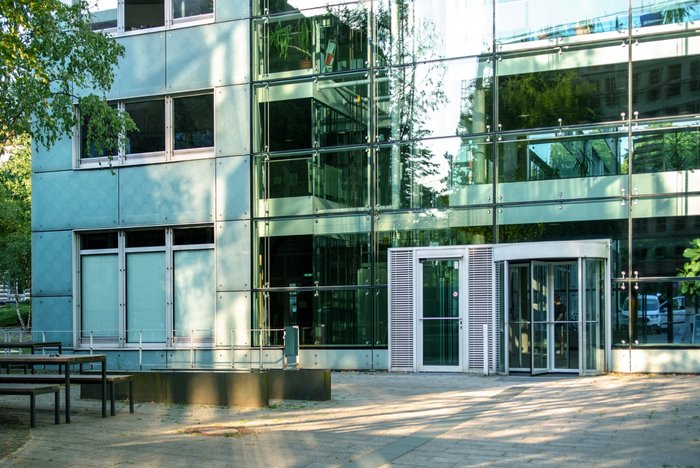
Funding possibilities for postdocs
The Max Planck Institute for Meteorology is continuously looking for promising young scientists at postdoctoral level. Our institute offers a stimulating intellectual environment as well as an efficient scientific infrastructure. There are relatively regular job offers for postdocs, which are published on the institute's website and suitable platforms. Some of the job offers cover a wide range of topics, while others are specific to certain projects.
In addition, there are a number of options for postdocs to apply for external funding for their own position and/or a research group. Among the options for external funding are:
Funding source: The Max Planck Society and the Weizmann Institute of Science
Funding: Full benefits package (relocation expenses, health, nursing, pension and unemployment insurance, as well as access to institutional resources and state-of-the-art research facilities), travel and conference funds, housing allowance
Duration: 4 years, half of the time spent at the Max Planck Society and half at the Weizmann Institute of Science
Eligibility: Outstanding postdoctoral researchers in the fields of physics, chemistry, mathematics, computer science and earth sciences
Deadline: 1 November 2023
Webpage: More about the programme and the application process
The Max Planck Society (MPG) and the Weizmann Institute of Science (WIS) jointly offer outstanding postdoctoral researchers in the fields of physics, chemistry, mathematics, computer science and earth sciences a prestigious four-year appointment in a unique research environment. The cooperation between the MPG and the WIS offers talented researchers the opportunity to participate in innovative projects, benefit from the expertise of two renowned institutions and contribute to the advancement of knowledge in their respective subjects. The new German-Israeli Max Planck Weizmann Postdoctoral Programme thus supports scientific cooperation and interdisciplinary research in both countries.
Funding source: Max Planck Society
Funding: own position, postdocs, PhD students, equipment, travel, consumables; typically between 1 and 1.5 Mio. Euro, depending on the research field and research topic.
Duration: 5 years (with possibility of an extension by two years twice in case of a positive evaluation)
Eligibility: Researchers holding a PhD and with a maximum of 7 years of experience since completion of PhD (exceptions are possible)
Deadlines: Annual call by the Max Planck Society, typically in September/October time frame
The Max Planck Society calls regularly for applications for open-topic Max Planck Research Groups (MPRGs). The call generally takes place once a year in the autumn. It is published on the careers section of the Max Planck Society website, as well as in international specialist publications and on employment websites specialized in scientific job opportunities. Detailed information for applicants will be available on the MPRG website of the Max Planck Society in due course.
This program is particularly suitable for excellent young applicants who have already held one or two post-doc positions and who would now like to head a group and work on own research ideas independently. Please note that Max Plank Research Group Leader (MPRG-L) positions are only open to applicants who hold a doctorate. The appointment of MPRG-Ls is subject to a rigorous selection procedure.
The open-topic MPRGs are not subject to any thematic restrictions. Applicants can indicate up to three Max Planck Institutes at which they would like to work.
MPRG-Ls receive a five-year W2 contract (salary is similar to that of junior and assistant professorships or associate professorships in the U.S.) which can be extended by two years twice in the event of positive evaluation. They are offered internationally competitive packages for personnel, start-up money, and yearly operating costs. Together with their Research Group, they use the infrastructure of the respective Institute and have their own budget for personnel and resources. The Group Leaders can use the approved budget at their own discretion. Even though they are granted scientific autonomy, they are expected to actively participate in Institute's life.
Applicants are strongly encouraged to contact the preferred Max Planck Institute(s) before submitting the application. Both sides can hereby identify areas of mutual interest. Also, it can be determined whether an institute is generally interested in the planned research work and whether it can provide space and administrative resources.
Funding source: German Research Foundation (Deutsche Forschungsgemeinschaft, DFG)
Funding: own position, postdocs, PhD students, equipment, travel
Duration: 3+3 years
Eligibility: Early career researchers with an excellent doctorate and a strong scientific track record; proposal submission normally up to 4 years after completion of the doctorate (extended by two years per child under the age of 12); at least two years of postdoctoral experience (prior to the start of the grant); substantial international research experience; foreign applicants are expected to continue their research career in Germany after the grant (written letter of intent required).
Deadlines: No application deadlines
The Emmy Noether Programme enables highly qualified early career researchers to become eligible for a university teaching career within a continuous period of six years. Proposals may be submitted to the DFG at any time. Funding is initially awarded for a three-year period, with the possibility of an additional three years. An evaluation is carried out at the end of the third year on the basis of an interim report. If the evaluation is successful, approval is given for another three years.
Regarding the funding, there are different modules that can be applied for. The main ones which are typically required are the module “Emmy Noether Junior Research Group Leader”, requesting funding for your position as project leader under the Emmy Noether Programme, and the “Basic Module” intended to request funding for direct project costs, project-specific staff (excluding the own position), and instrumentation necessary to carry out the project.
The Emmy Noether programme is primarily targeting for universities as host institution. However, also a Max Planck Institute can be the host. The possibilities for supervising doctoral students and for teaching need to be demonstrated.
Funding source: Alexander von Humboldt Foundation
Funding: Monthly (tax free) stipend (2650 € in 2018), travel costs etc.
Duration: 6-24 months
Eligibility: Doctorate or comparable academic degree (Ph.D., C.Sc. or equivalent), completed less than four years prior to the date of application; foreign applicants must have lived outside Germany for a minimum of 12 months in total in the 18-month period prior to submission of the application; German applicants must have had their habitual place of work and residence located abroad on the assumption of permanence for at least five years.
Deadlines: No application deadlines
Humboldt Research Fellowships allow postdoctoral researchers from abroad to spend extended periods of research (6 - 24 months) in Germany. Applicants choose their own topic of research and their host in Germany. Details of the research outline and intended duration of the fellowship must be agreed with the prospective host before applying. The application has to be submitted by the applying postdoc. The host institution has to upload a host’s statement (comprising a confidential assessment of the applicant and the proposal) and a signed confirmation of research facilities. In addition, the doctoral supervisor and one other qualified reviewer to be selected by the applicant have to upload expert reviews. As soon as all required documents are uploaded, applicants will be notified about the proposed selection date. Typically this will be in the range of 6 to 9 months. The fellowship has to be started between 2 and 12 months after approval.
Funding source: European Research Council (ERC)
Funding: own position, postdocs, PhD students, equipment, travel; up to 1.5 million Euro in total
Duration: 5 years
Eligibility: PhD awarded > 2 and ≤ 7 years prior to 1 January of the year of the call ; open for researchers of any nationality; host institutions must be established in an EU Member State or Associated Country.
Deadlines: Once a year (mid-October)
The ERC supports projects, which are carried out by individual research teams headed by a single Principal Investigator (PI) of any nationality.
Grants are awarded to the host institution that engages and hosts the PI. The PI will be employed by the host institution. The PI does not need to be employed by the host institution at the time when the proposal is submitted. Host institutions must be established in an EU Member State or Associated Country.
The Starting Grant PI must have already shown the potential for research independence and evidence of maturity. The PI should be able to demonstrate a promising track record of early achievements appropriate to their research field and career stage, including significant publications (as main author) in the leading international peer-reviewed journals of their respective field.
Contact
Dr. Sigrid Meyer
Third Party Funding
Tel.: +49 (0)40 41173-435
sigrid.meyer@mpimet.mpg.de
Dr. Ulrike Kirchner
Research Coordinator
Phone: +49 (0)40 41173-235
ulrike.kirchner@mpimet.mpg.de




